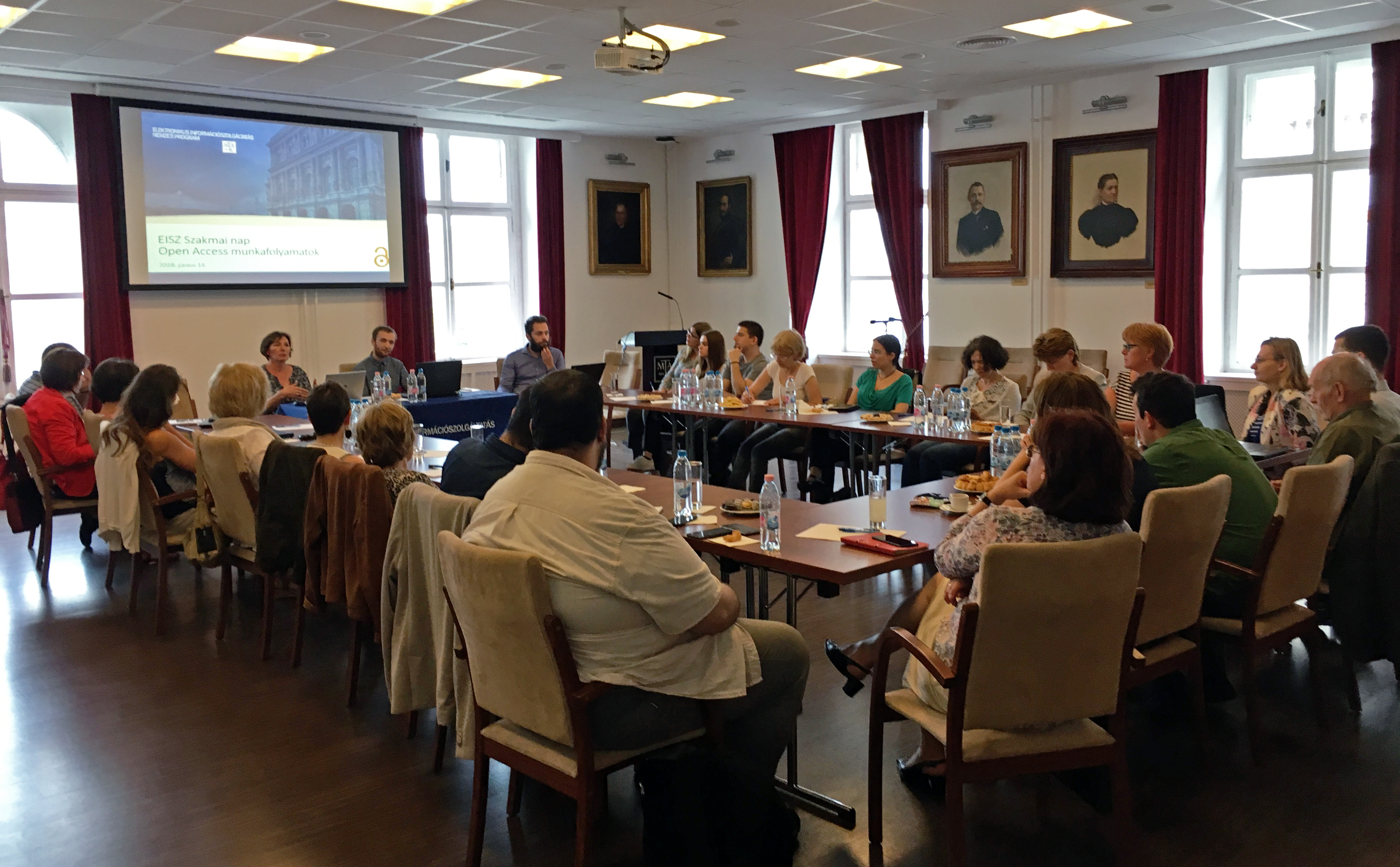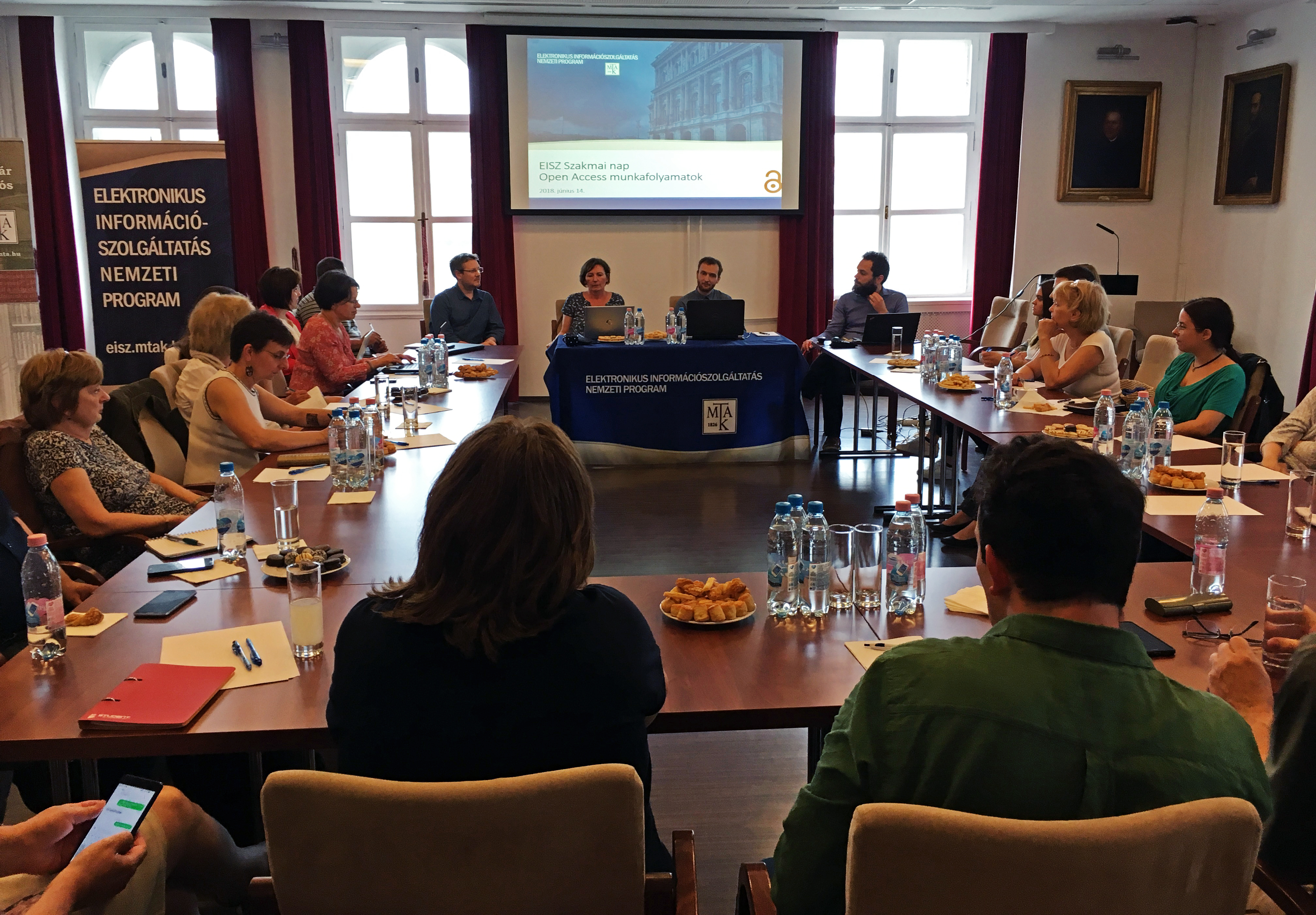On the 14th and 15th of June, EISZ organised a workshop about the transitional agreements with publishers, and the impact of these agreements in library workflows. The workshop was the third in line, following the re-wording of our model license and the questions around eBook acquisitions.

The aim of the two-day event was to share experience and good practice, and to identify the priorities of our future agreements which will best serve the needs of EISZ member institutions.
During the event, we were focusing on the necessary actions needed for a change in scholarly communication for the transition to Open Access. Especially, how offset, transitional, and read & publish agreements influence the library workflows. We discussed the results of EISZ’s 2017 APC survey, and the issue of alternative access to literature: solutions which help users to find relevant articles in a legal way. The workshop was wrapped up with a discussion about EISZ’s current work, results of our transitional agreements currently in place, and our future strategy.
The workshop resulted in a lively and thoughtful conversation between EISZ and the representatives of 14 universities, 10 research centres of the Hungarian Academy of Sciences, and other not-for-profit research organisations.

Suggested reading for the workshop topics:
Article processing charges (APCs) and subscriptions: Monitoring open access costs
Disrupting the subscription journals’ business model for the necessary large-scale transformation to open access: A Max Planck Digital Library Open Access Policy White Paper
Enhancing Institutional Publication Data Using: Emergent Open Science Services
Five principles to navigate a bumpy golden road towards open access
Getting Scientists Ready for Open Access: The Approaches of Forschungszentrum Jülich
It’s the workflows, stupid! What is required to make ‘offsetting’ work for the open access transition
Joint Understanding of Offsetting
Monitoring the transition to open access
Open Science and its role in universities: A roadmap for cultural change
Pathways to open access
Responding to Unsustainable Journal Costs: A CARL Brief
The State of OA: A large-scale analysis of the prevalence and impact of Open Access articles